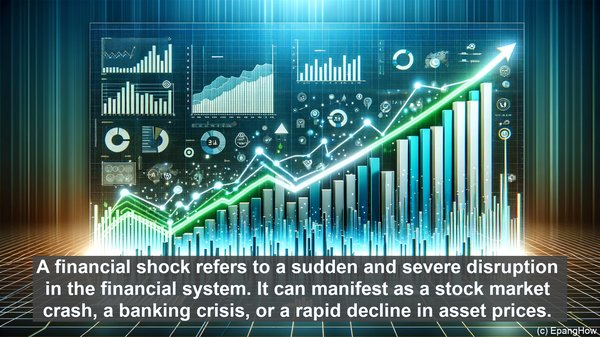Introduction: The Intricacies of Economic Phenomena
Greetings, ladies and gentlemen! The world of economics is a complex tapestry, woven with various threads of events and occurrences. Today, we unravel the distinction between financial shocks and economic shocks, two terms that often intertwine but possess distinct characteristics.

Defining Financial Shocks: The Ripple Effect
A financial shock refers to a sudden and severe disruption in the financial system. It can manifest as a stock market crash, a banking crisis, or a rapid decline in asset prices. The repercussions of such shocks extend beyond the financial sector, reverberating throughout the economy. They can trigger a loss of confidence, reduced investment, and even a contraction in economic activity.
Unpacking Economic Shocks: The Broader Picture
In contrast, an economic shock encompasses a broader range of factors. It can arise from various sources, such as natural disasters, geopolitical events, or technological advancements. Economic shocks can have a profound impact on multiple sectors, altering consumer behavior, supply chains, and employment patterns. They often result in an economic downturn, characterized by reduced GDP growth and increased unemployment.

Interplay Between Financial and Economic Shocks
While financial and economic shocks are distinct, they are not mutually exclusive. In fact, they often interact and reinforce each other. A financial shock, such as a banking crisis, can trigger an economic shock by disrupting credit availability and investment. Conversely, an economic shock, like a recession, can lead to financial shocks as businesses struggle, loan defaults rise, and financial institutions face strain.
Mitigation and Response: Policy Measures
Addressing financial and economic shocks necessitates a multi-faceted approach. Central banks can employ monetary policy tools, such as interest rate adjustments, to stabilize the financial system and stimulate economic activity. Fiscal measures, such as government spending or tax cuts, can also play a crucial role. Additionally, regulatory frameworks that enhance transparency and risk management can help prevent and mitigate shocks.
